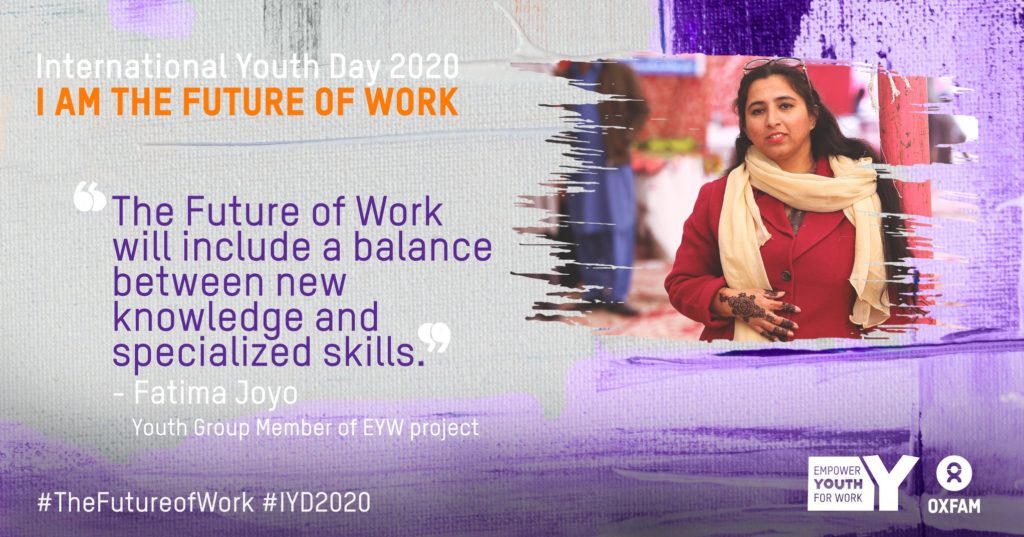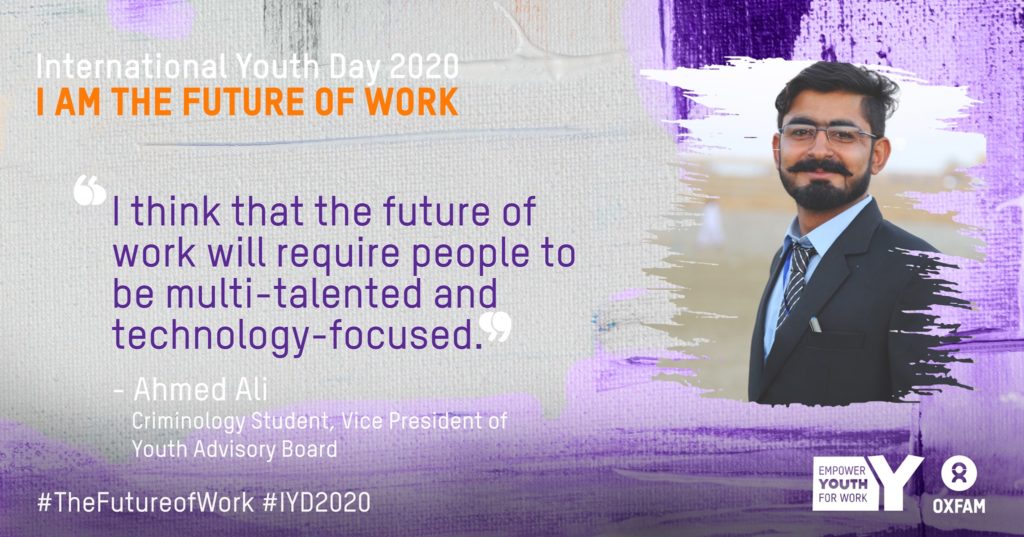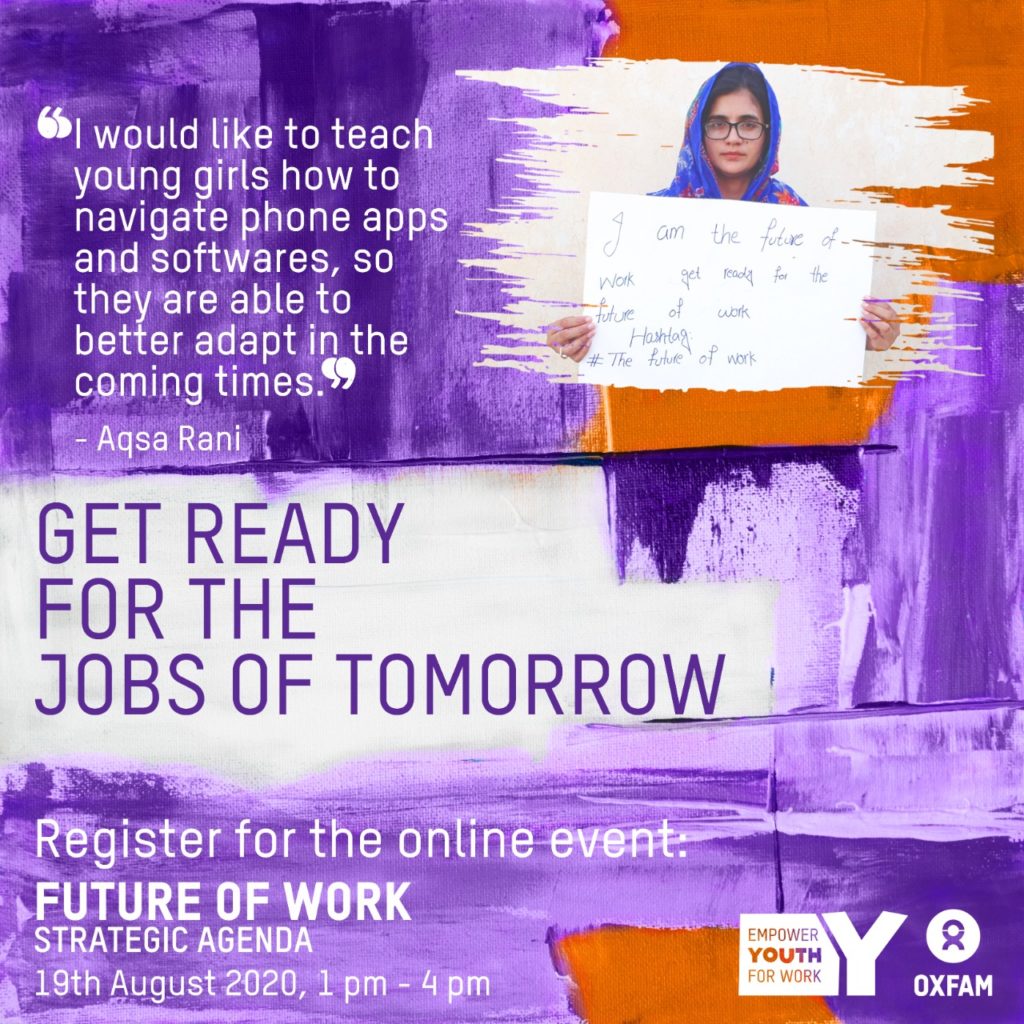International Youth Day in Pakistan 2020
In Pakistan, as in the other EYW countries, International Youth Day 2020 provided an opportunity for young people to come together to discuss the future of work. Young women and men from the rural areas of Sindh and Punjab took part in intensive training to help them adapt to a fast-changing labor market.
The future of work has become very uncertain and so is the future of our youth. Technological advances and climate change are driving very important changes in employment, which have been exacerbated by the global pandemic. In the case of Pakistan, shrinking space for civil society adds to the challenges and the uncertainty.
As in many parts of the word, young people in Pakistan are neither aware of nor prepared for this future. Thus, as part of International Youth Day, EYW carried out training on ‘Transformative Scenario Planning’ (TSP) to better equip young people for the fast-changing environment.
As defined by the ASSAR (Adaptation at Scale in Semi-Arid Regions) program, TSP “is an approach that brings concerned stakeholders from different, often conflicting, perspectives together around pressing sets of problems to build stories that illustrate a range of potential futures that could come from taking different paths for dealing with those issues. By doing this, the involved stakeholders learn more about their present situation and about what dynamics in that situation are serving to help or hinder progress toward a more equitably beneficial future.”

Thinking outside the box
During the first workshop, Saleem Malik, a Development Management Consultant, introduced the concept of TSP, why it is important, and how young people can use it as a tool to cope with rapidly changing scenarios. He said:
“The uncertainty of the future – especially of work – that our younger generation are facing is unprecedented. Nobody has a clue what will be an appropriate vocational skill two decades down the line. We don’t know what to teach our children that they will be able to use and keep themselves busy with. We need to keep thinking out of the box. Transformative scenario planning can help us do that. Let us learn it and use it to cope with the uncertainty that we are faced with.”
The TSP training was carried out during five half-day long sessions spread over two weeks in late August/early September. Participants were introduced to the process of conducting transformative scenario planning and practiced it in group work and individually. They learned how to create stories about the future of work that are relevant, plausible, challenging and clear. Groups then presented their stories were presented in the plenary, questions were raised, and the stories improved by their authors in light of feedback. Participants then drew timelines from the present to the imagined scenarios of 2030, helping them to envisage actions needed at different levels to rise to new challenges.

Imagining 2030
This was a new subject for the participants, and many were nervous at the beginning; however, they were curious, and soon felt at ease. There were technology challenges, as the internet signals were weak and unstable, and these were exacerbated by unprecedented heavy rains and floods, especially in Sindh. However, the workshop was completed successfully, thanks to the efforts and flexibility of the participants, the partner NGOs and the Oxfam team. The extreme rains helped participants understand the reality of climate change impacts on rural areas of Pakistan.
At the end of the training, participants agreed on the following conclusions:
- Pakistani youth in general, and rural youth in particular, are living in the most uncertain times in history. The level of uncertainty, especially regarding the future of work, is unprecedented.
- The main drivers shaping the future of work are technological advancements, the rapid pace of climate change, and the shrinking space for civil society in Pakistan, which has the potential to weaken the human rights movements.
- Transformative Scenario Planning is an excellent tool for helping young people to think about the future of work and create scenarios (and responses) which are relevant and plausible.
- TSP also helps us to think about present in a much more constructive way.
The young people will now share their learning on TSP and practice it with their peer groups in the communities. EYW’s partners in both provinces will support the youth to implement action plans to prepare for the changing world of work.

